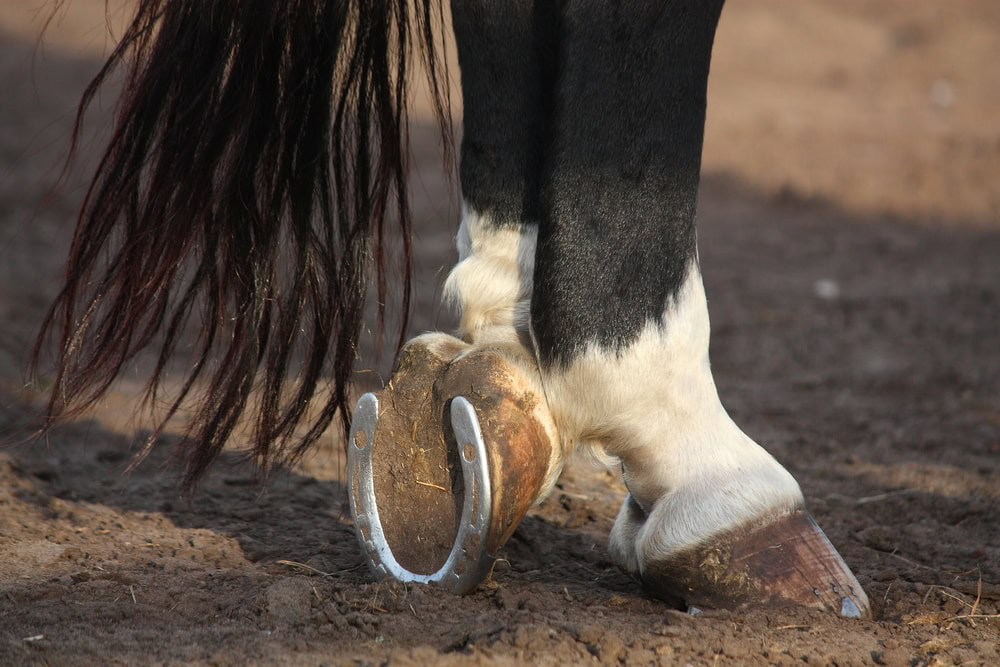Click to Skip Ahead
Horseshoes may be considered a sign of luck according to many people, but to horses, they are more than just good luck charms. As big as they are, horses can suffer a surprising amount of pain and health concerns if they develop issues with their hooves. Horseshoes and regular visits from the farrier for hoof care are an essential part of keeping your horse healthy.
If you’ve ever seen a horse having shoes put on, you may have wondered if the process is painful. After all, the shoes are nailed into the hoof! The good news is that properly fitted horseshoes don’t hurt horses. In fact, not wearing horseshoes will likely be more painful and even dangerous to your horse, depending on where they are ridden.

Why Don’t Horseshoes Hurt Horses?
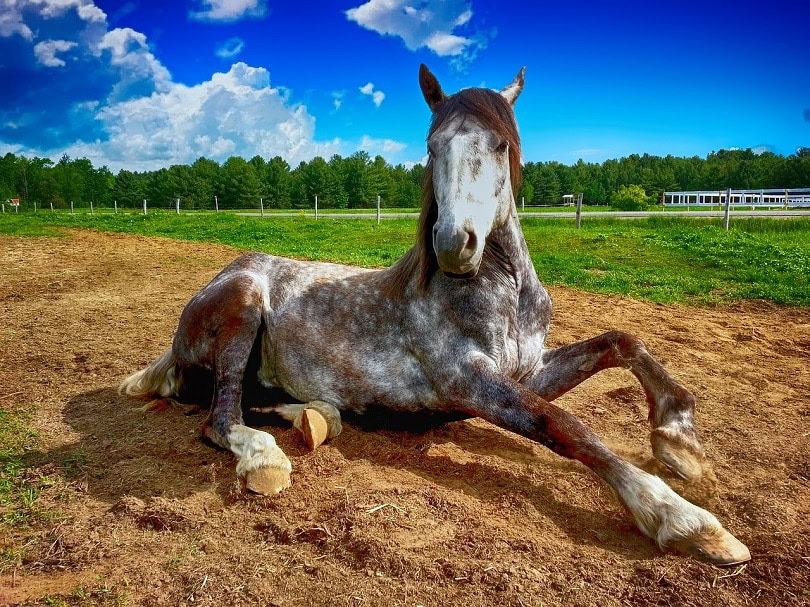
The outermost layer of a horse’s hooves is similar to fingernails in people. This layer is always growing and there are no nerves present. Just like we have to keep our fingernails trimmed, a horse’s hooves also need regular trimming. And just like cutting your fingernails doesn’t hurt if you do it properly, trimming a horse’s hooves shouldn’t hurt either.
Horseshoes are nailed into that outer layer of a horse’s hoof. Because the layer doesn’t have any nerves, the horse doesn’t feel pain from the nails going into their hooves if it is done correctly.
Shoeing a horse should always be done by an experienced, professional farrier. You should never try to shoe your own horses (unless you are a farrier of course). The only time horseshoes might hurt a horse is if they aren’t fitted correctly or the nails are placed improperly or too far in.
Why Do Horses Wear Horseshoes?
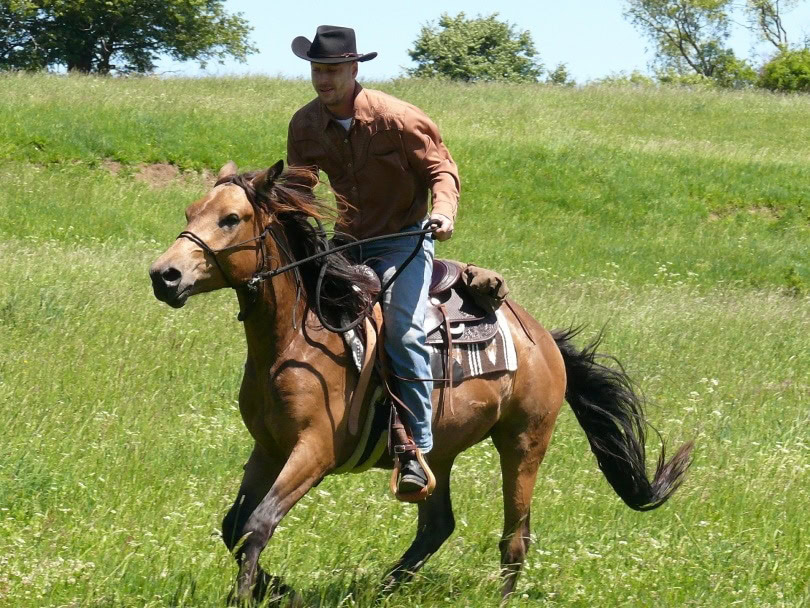
Horses wear horseshoes for the same reason that people wear shoes: to protect their feet. A horse’s hooves are under a lot of stress carrying around not only the weight of the horse themselves but their riders as well. Making sure the hooves stay healthy and protected is vital for a horse’s health and safety.
Not all horse hooves are the same. Some are harder and more durable, others softer and more sensitive. Some horses also have hooves that aren’t correctly developed, causing issues with their gait and possibly lameness. All horses are susceptible to their hooves cracking and becoming infected.
Wearing horseshoes helps to correct or prevent many of these issues. Horses can also wear different types of shoes based on what type of work they do. For example, a racehorse may wear lighter shoes designed to help their hooves grip the track better as they run.
Do All Horses Need to Wear Horseshoes?
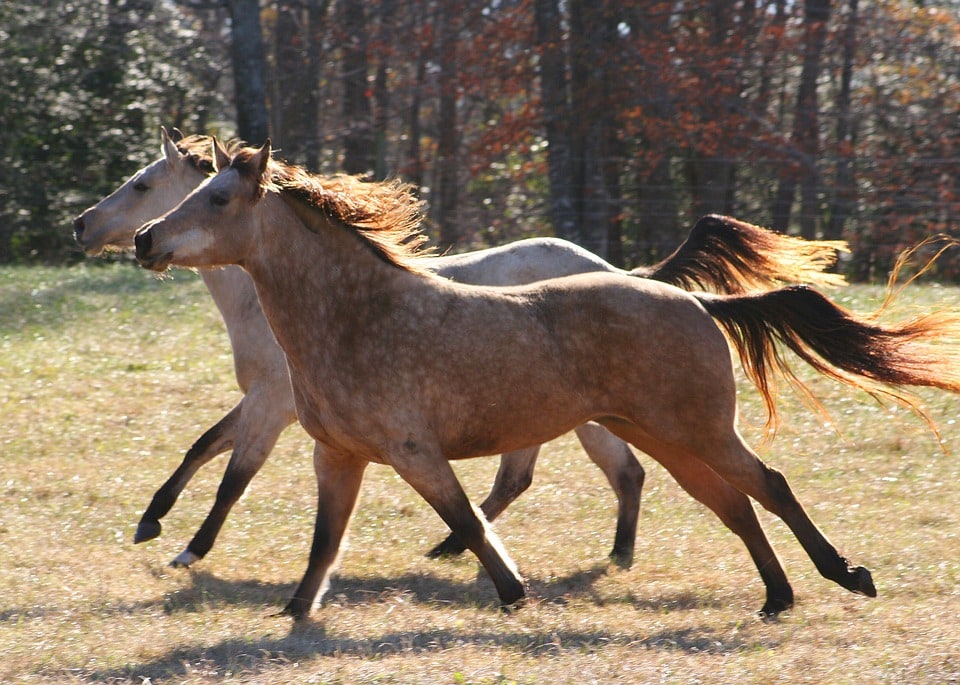
Horse enthusiasts have differing opinions on whether all horses need to wear horseshoes. The decision is usually based on what kind of work the horse does regularly, as well as what type of surface they are usually ridden on. Individual horses may have certain issues with their hooves that make it a bad idea to let them go without shoes as well.
As a general rule, horses that are regularly ridden on hard or uneven surfaces should wear horseshoes. Horses that are actively used for work or sport, such as jumping, showing, or pulling carts should usually wear horseshoes to protect their hooves and help minimize wear and tear. Horses that have any type of issue with their hooves should generally wear horseshoes and often need special shoes.
Horses can be allowed to go barefoot (or, perhaps, behooved?) in certain circumstances. For example, retired horses that spend all day at pasture in soft grass may not need shoes. The best thing to do if considering letting your horse go barefoot is to consult your farrier and veterinarian. They can help you decide if it is safe for your horse to not wear shoes.
How Does the Shoeing Process Work?
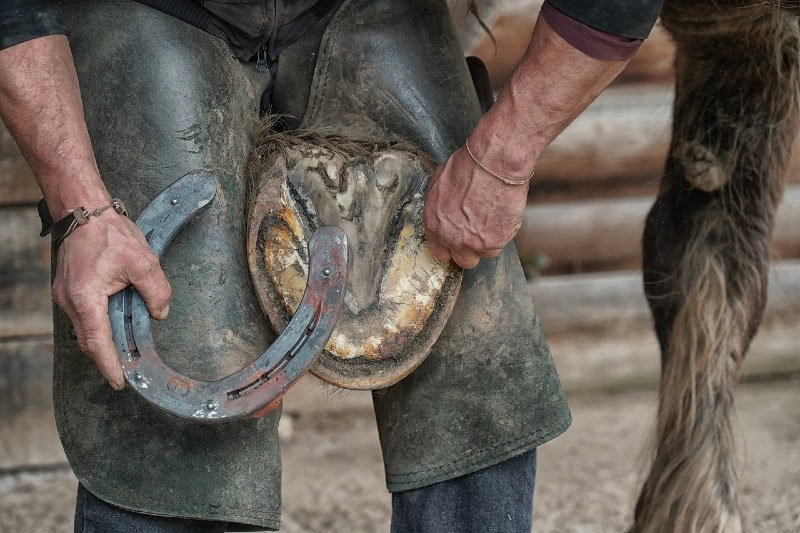
Depending on how much wear and tear your horse puts on their shoes, they will generally need to be replaced every 4-6 weeks or so. Finding an experienced, trustworthy farrier is the first step to making sure your horse’s hooves are properly cared for. Your routine farrier visits will generally follow the same process each time:
- The farrier will watch your horse move around, checking for any obvious lameness or abnormal movement.
- Next, the farrier will clean out your horse’s hooves, checking for any injuries or concerns.
- The old shoes will be removed and the farrier will file and shape your horse’s hooves in preparation for placing new ones.
- Once the hooves are ready, the farrier will fit new shoes to your horse’s feet, heating and shaping them to fit correctly.
- Once the farrier is satisfied the shoes are ready, they will nail them on, then file down the nails so they don’t stick out past the surface of the shoe.
- As a final check, the farrier will watch your horse move again, making sure everything looks correct and properly fitted.
Another thing to keep in mind is that horses who go barefoot will still need regular visits from the farrier to have their hooves trimmed and checked.

Final Thoughts
While the thought of having nails pounded into your feet may make you cringe, it’s important to keep in mind that a horse’s hooves are different from our feet. The nails don’t hurt them because of where they are placed in the hoof. Wearing horseshoes is an important part of keeping a horse healthy and happy. Whether horseshoes actually bring good luck is debatable, but the benefit they provide to your horse isn’t in doubt!
See also:
Featured Image Credit: jean-pierre duretz, Pixabay
